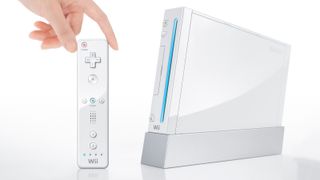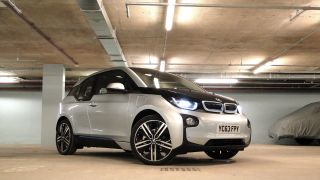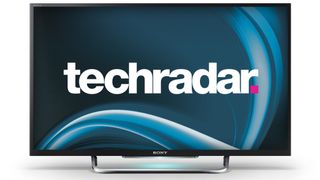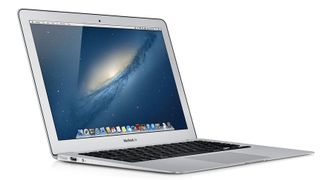Nest and 12 more technologies that will help you save the world
There's more to fuel economy than pinching pennies

We all know that we need to abandon our wasteful ways and go completely green.
We also know that we won't, because humans rarely succeed in putting our long-term needs above out short-term convenience. Thankfully there's a middle ground between pretending climate change doesn't exist and abandoning our worldly possessions to live in trees and eat nothing but plants. If we all tried to be a bit greener, we could have a really big impact.
We're not recommending throwing everything in a skip and buying newer, more efficient devices and appliances - any energy savings would be dwarfed by the carbon footprint of making the things in the first place - but a few changes could make a big difference, not just to your environmental impact but to your wallet too.
Here's the hardware that can help.
1. Nest

The all-singing, all-dancing Google-owned Nest thermostat promises to save energy by making your home heating smarter: it'll reduce the heating when you or the sun's out, and it'll calculate the optimum times and temperatures for your home.
It and similar devices such as Hive can make a big difference in the energy you use, delivering an equally large cut in your monthly bills.
2. Better boilers
There's no point in having a smart thermostat if your boiler's been around since the Dark Ages. Upgrading from an old G-rated boiler to a modern A+ one makes a huge difference: the former can be less than 70% efficient compared to 90-plus for an A+ one. That's a difference of around 1,200kg of CO2 each year - and once again you'll also feel the benefit in your bank balance for years to come.
Get daily insight, inspiration and deals in your inbox
Get the hottest deals available in your inbox plus news, reviews, opinion, analysis and more from the TechRadar team.
3. Radiator boosters
If you have traditional metal radiators you'll know it takes ages to warm up your house. Radiator boosters are fans that sit on top of radiators and move the air more quickly, enabling you to turn the heating down sooner and use less energy as a result. If the radiators are on external walls, fitting foil panels can reduce heat loss, improving efficiency even more.
4. Energy monitors
Energy monitors don't do anything to directly reduce your energy usage, but they do help name and shame the worst offenders and identify whether something's on that shouldn't be.
5. Old games consoles

If you're an environmentally conscious gamer, stick with your old console: according to the US National Resources Defense Council, the PS4 and Xbox One are considerably more power hungry than their predecessors.
Use the right device for the right applications too. For example, when watching TV, dedicated streamers such as Apple TVs and Chromecasts use considerably less energy than games consoles do.
6. LED bulbs
They're better, brighter and more affordable than ever, and the difference they make to a typical home's energy use is staggering: replace six halogen downlighters with the equivalent LEDs and you're dropping from 300W to 12W or less. With an LED bulb system such as Phillips Hue, you can even control your home's lighting from your iPad. Look for warm white bulbs if you don't like the blue tint of early LED lights.
7. Electric cars

Yes, they still ultimately use fossil fuels - but they aren't belching greenhouse gases into the air when you drive them. The sticker price is necessarily steep and they're still not much use outside cities, but if you have spare cash and a short commute an EV such as the BMW i3 will massively reduce your emissions.
8. Rechargeable batteries
Normal batteries are hugely wasteful, and they're a great example of how very small changes could have an enormous impact if everybody joined in.
The 2007 UNIROSS study of batteries' environmental impact found that rechargeable batteries had up to 32 times less impact on the environment than traditional ones: while a rechargeable battery has the same impact on climate change as a car driving 16km, a traditional battery is equivalent to 457km.
The study estimated that if all of Europe replaced disposables with rechargeables, the effect on climate change would be equivalent to 5 billion fewer kilometres driven by cars.
9. Apps
Why use battery powered devices at all? Your smartphone can be a remote control, sat-nav, camera, games console, TV streamer and music player, and manufacturers' constant battles to improve phones' battery life means they're becoming more and more energy efficient. The move to mobile computing helps too, because smartphones and tablets are generally less power hungry than PCs.
10. More efficient TVs and white goods

Dishwashers and tumble dryers are dreadfully dull, but watching the energy ratings when you shop for replacements pays off dramatically: at UK rates, an A+ dishwasher is £40 per year and an A-rated tumble dryer £180 per year cheaper to run than average.
There are big differences between TVs too, with LEDs using a fraction of the energy of big plasmas (although as you might expect, with all other things being equal bigger screens generally use more energy).
Have a look at www.sust-it.net to compare the energy costs of different devices: switching to more efficient home appliances could save 1,992kg of CO2 per year, which is a significant chunk off your energy bill.
11. Solar chargers
We admit that they're more useful in California than Cumbria, but if you've got the sunshine - and you shop around for the most efficient ones - then they can help reduce your energy footprint, if only slightly.
12. Ecobutton
Many standby savers fail to live up to the hype, often because we forget to use the remote to turn them off. But Which? found the Ecobutton power saver really did deliver on its promises - although any reasonably competent Windows user could achieve the same energy savings by tweaking Windows' power saving options. So maybe you should do that instead.
13. Energy efficient laptops

According to sust-it.net, the 1.3GHz 13-inch MacBook Air costs £0.85 per year to run and is responsible for 2.61kg of CO2 annually, while an HP Envy 15 costs £7.70 and chucks 23.03kg of CO2 into the atmosphere. Laptops are much better than desktops and all-in-ones: an HP Pavilion 23 costs £25.46 and generates 78.23kg of CO2, so it's practically driving a V8 to the Arctic and punching polar bears in the face.
Writer, broadcaster, musician and kitchen gadget obsessive Carrie Marshall (Twitter) has been writing about tech since 1998, contributing sage advice and odd opinions to all kinds of magazines and websites as well as writing more than a dozen books. Her memoir, Carrie Kills A Man, is on sale now. She is the singer in Glaswegian rock band HAVR.

